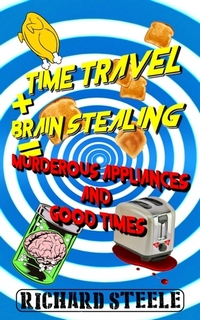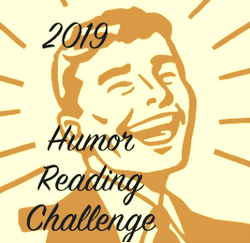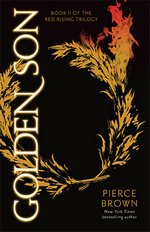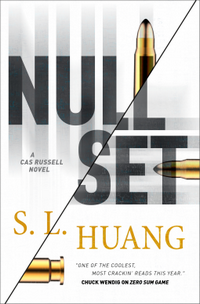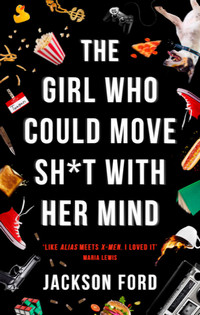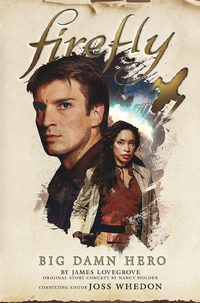by Jackson Ford
Series: Frost Files, #1
eARC, 496 pg.
Obit Books, 2019
Read: May 28 – 29, 2019

Not unlike James Alan Gardner’s All Those Explosions Were Someone Else’s Fault from 2017, the title, The Girl Who Could Move Sh*t with Her Mind tells you all the important things about this book that you need to know before picking it up — although I think this book does a better job of following through with the tone of the title throughout the book. The voice, the attitude and the defining characteristic of the protagonist (at least as most people are concerned) is all right there. If the title turns you off, don’t bother buying/borrowing this novel, you’re going to hate the experience. The same goes for the first few pages — if you’re not amused and/or intrigued by Teagan’s personality and narration within the first chapter, just stop and go find something else. If you’re amused and/or intrigued? You’ll be in for a good time. If you’re amused and intrigued? Well, my friend, settle back and enjoy.
Teagan Frost is our titular girl, and she…well can move sh…aving cream with her mind. She has psychokinetic abilities (not telekinetic, she’s touchy about that distinction) — or pk, as she calls is. Teagan will slowly describe her abilities to us as she has opportunity — and eventually will spell out to someone where those abilities came from (surprisingly far from the beginning — which I appreciated). But for the initial plot all you need to know is what the title said.
She’s part of a pseudo-governmental espionage team that acts a lot like judge and jury without bothering with the formalities. No one, or almost none of her team wants to be on it, but the shadow-y figure that calls the shots is forcing them all to be part of it (including Teagan — don’t get the idea that she wants to be some pk wielding super-hero/secret agent — she wants to work in a kitchen somewhere until she’s good enough to start her own restaurant). The rest of the team have various skills that prove handy in their tasks, but she’s the only one has any kind of extra-ordinary abilities. Actually, as far as anyone knows, Teagan is the only person alive who can do what she does.
That is, until a dead body is discovered — and the victim could not have been killed by anyone but a psychokinetic. Naturally, there’s a tie to both Teagan’s teams recent activities and the location they were in the night before. The police are looking for them (not that they have an explanation for how the victim died, but they expect someone can), and some of the higher ups in the government want to take care of Teagan without worrying about due process (those who live by the sword and all) — and if that “take care” involves dissection or vivisection so they can figure out how her pk was given to her . . . well, who’s to complain? Teagan doesn’t have a lot of time to clear her name, but she’s going to try. As are most of her associates — if she does down for this, they will to.
Time prevents me from talking about all the things I want to, but that should be enough to whet the ol’ appetite. It’s a fun book and not one you need to know much about first. There’s a lot of action, plenty of snark, some violence, some banter, some mystery, some heartbreak. There’s a very Cas Russel/Peri Reed feel to this book and this world. But something that feels entirely fresh at the same time. I’m not sure that’s technically possible, but it seems it. So it can appeal both to fans of Cas and Peri, as well as those who didn’t care for them/don’t know who they are.
There’s a lot of depth to the characters, a lot more than you’d expect — which is one of the great parts about this book. As you learn more and more about what’s really going on around the murder victims the more you learn about Teagan and her team/found family (ditto for Teagan, actually). There are plots revolving around romance and friendship plots that are legitimately surprising — in a pleasant way, nice to see someone going the way Ford does, making the choices he makes for his characters. While I’m on the subject, it wasn’t just in characterizations/relationships that Ford surprised me — he did it throughout. Even when I was saying “Well of course, ____ was really doing ___, there’s no other explanation” to myself, that was a heartbeat after I said, “What??!?! No, that can’t be right!” I’m not saying I couldn’t see anything coming, but the ratio of surprises to telegraphed moves comes out in Ford’s favor.
There are a number of X-Men parallels, going on here — all of which would appeal to Teagan (some of which she mentions). Which is a nice touch. It’s probably also something that deserves more space than I’m giving it — I’m stopping myself, because I think I could go a long way down this particular rabbit hole. I’d love to ask Ford about it.
Now, there’s one character that I think Ford messed up — he’s part of a government clean-up crew that comes to take Teagan into custody. For some reason, he hates Teagan with some sadistic vengeance, and isn’t afraid to tell anyone that. It’s senseless and motionlessness (yeah, I know sometimes people hate others for no reason — I can accept that in real life, I can’t accept it in fiction. There has to be a reason). Which is strange, as little as we understand this jerk, we know the murderer and the individual prompting them to act. Technically, we know more about the killer than we do about Teagan for most of the book. Which just makes the clean-up guy even stranger.
I expect in future installments, we’ll get an explanation for the hatred and I’ll shut up. But not until then. Ford may be playing a long game here, but this is a short game world. Ford’s set up a lot for future installments, really (you won’t figure out just how much until the end — unless you’re smarter than me, then maybe you’ll see some of it coming) — but that doesn’t stop this from being a wholly satisfying experience.
So much of the time when I’ve been reading lately I get wrapped up in evaluating a book (for good or ill), wondering why an author did this or that, and what that might mean for the book as a whole, what that might say about the writer, etc. There’s nothing wrong with that — at all. But every now and then, it’s nice to stop the critical thinking and just enjoy a book. I’m not saying I did that wholly (and my lengthy notes can testify to that) — but in a real sense I did. I got lost in Teagan’s voice, the action, and wondering just how far the killer (and the individual pushing him to be one) would go, and who’d be lost in the process. I didn’t worry about what I was going to write, but about what Jackson Ford had written. I appreciate that.
I think this is one that could be better on a second (and then maybe on the third) read, once you can take your time and not race to find out what happened, or be dazzled by Teagan’s personality. If I’m wrong, and Ford’s just razzle dazzle — well, you’re left with a fun read with snappy prose and an more-entertaining-than-most protagonist/narrator. Either way, The Girl Who Could Move Sh*t with Her Mind is a book I recommend without a hint of hesitation (if you pass the simple tests from my first paragraph).
Disclaimer: I received this eARC from Orbit Books via NetGalley in exchange for this post — thanks to both for this.
—–

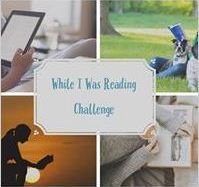 |
✔ A book with a curse word in the title. |




